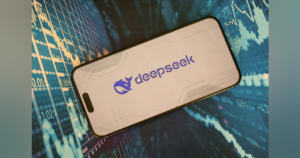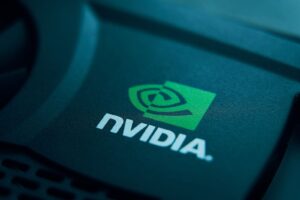Assessing the Impact of the DeepSeek Shock

The Rise of DeepSeek and Its Impact on AI Competition
As the Lunar New Year approaches, DeepSeek, a Chinese AI company, has temporarily slowed its operations. The company’s headquarters in Hangzhou is quiet, leading to global speculation following its release of two new AI models: the reasoning model R1 and the non-reasoning model V3. These advanced models reportedly perform comparably to those from OpenAI, yet at a significantly lower cost. On January 27, a notable downturn in the U.S. stock market included an 18% drop for Nvidia, marking a historic low, although shares rebounded the following day.
Understanding DeepSeek’s Journey
Background of DeepSeek
DeepSeek started in 2023 as a project by Liang Wenfeng, who combined AI with quantitative trading strategies at his hedge fund, High-Flyer. Liang began stockpiling Nvidia chips as early as 2021. Despite his low profile, Liang expressed his ambition in a July 2024 interview, emphasizing that China must innovate rather than imitate. He noted that the real barrier for Chinese companies is not funding but self-confidence and effective talent management.
While many Chinese firms develop applications based on existing open-source models, Liang seeks to create true artificial general intelligence (AGI). He adapts his models to the local reality of limited access to high-end AI chips. DeepSeek’s teams consist mainly of fresh graduates from top Chinese universities, with a work culture that reflects a flat organizational structure typical of Silicon Valley startups.
Cost-Efficiency in AI Development
The Cost of DeepSeek Models
According to a December 2024 technical report, DeepSeek spent around $5.576 million on model training, utilizing 2,048 Nvidia H800 GPUs over 2.788 million GPU-hours. This claim, however, has raised eyebrows as it does not account for early research costs, leading some experts to suggest that the total investment may have substantially exceeded this figure. For instance, AI specialists estimate that DeepSeek’s initial stages could have consumed significantly more chips, potentially costing over a billion dollars.
Infrastructure Considerations
DeepSeek acquired 10,000 Nvidia A100 chips and 50,000 H800 chips, which would alone cost approximately $130 million. Comparing DeepSeek’s reported training costs with traditional AI infrastructure investments in the U.S. illustrates that the U.S. companies often spend far more on comprehensive setups, which includes various overheads and ongoing operational costs.
Future Directions in AI Development
Scaling vs. Innovative Optimization
The phrase "necessity is the mother of all invention" holds true, particularly for China. DeepSeek’s approach reflects a focus on rapid development despite scarcity of resources, contrasting sharply with U.S. firms that tend to prioritize scaling their operations with the latest technologies. DeepSeek has initiated a price war among Chinese tech giants, such as Alibaba and Tencent, forcing them to reassess their pricing and strategies.
Interestingly, while China’s technological progress is evident, the political landscape in the U.S. reacted cautiously to DeepSeek’s emergence. Political leaders have highlighted the competition but emphasized the need for a strategic response that does not halt progress in domestic innovations.
Regulatory and Data Security Concerns
Data Handling Practices
DeepSeek’s operations raise significant concerns regarding data security and user privacy. The company’s policy states it collects personal data, which may be stored on servers in mainland China, heightening fears of data misuse. Reports of sensitive information being leaked have emerged, alongside accusations of the company adhering to strict censorship guidelines imposed by the Chinese government.
As DeepSeek continues to integrate into various platforms, including applications outside China, the implications of its practices become a topic of scrutiny, particularly regarding compliance with global privacy standards like the GDPR.
Addressing Allegations of Distillation
In light of suspicions that DeepSeek utilized a technique known as "knowledge distillation," where knowledge from established models is transferred to create more compact versions, OpenAI has raised alarms over potential violations of its terms. This has fueled the conversation around intellectual property rights in the AI sector and whether DeepSeek’s innovations stand alone or borrow heavily from existing technologies.
The rapid development of DeepSeek has served as a wake-up call for the U.S. and global AI stakeholders. It is evident that the AI landscape is becoming increasingly competitive, and scrutiny continues to grow around how data and technology are managed and the ethical implications related to AI training and development.






